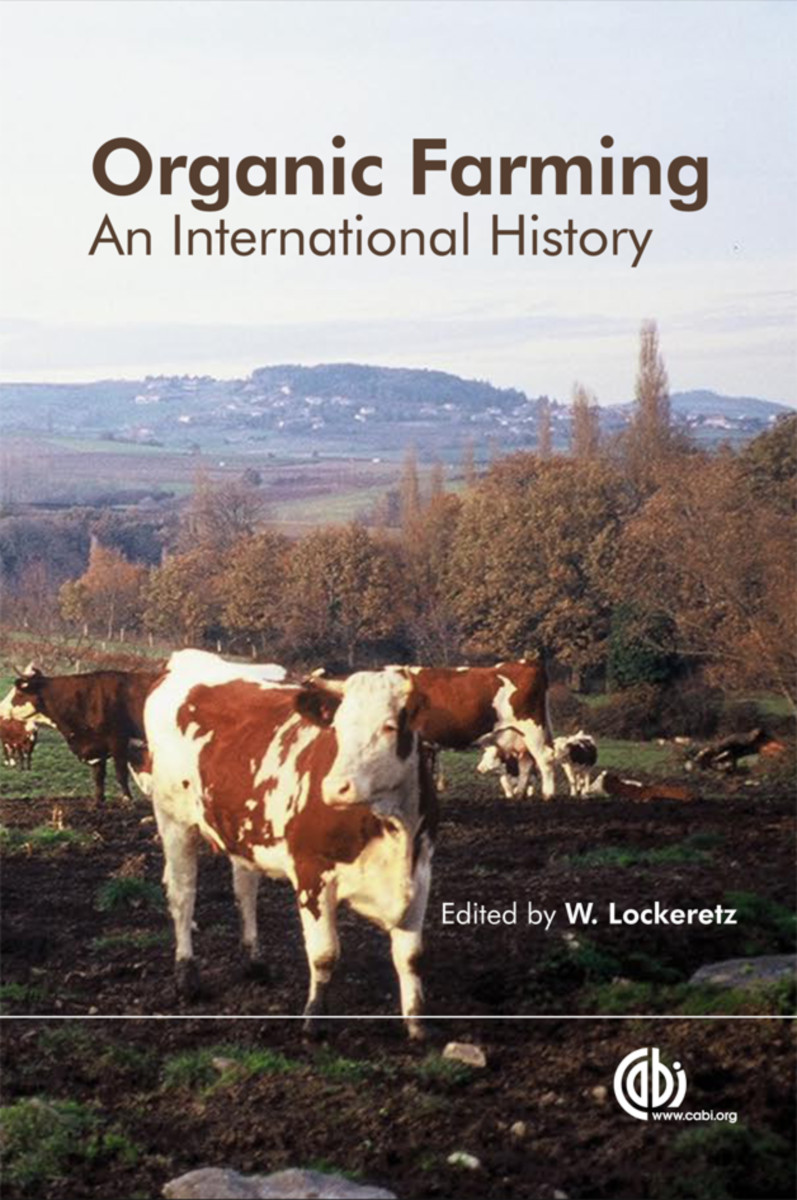Organic Farming
An International History
- Publisher
CABI - Published
6th May 2011 - ISBN 9781845938765
- Language English
- Pages 290 pp.
- Size 6.875" x 9.75"
- Images b/w photos
- Publisher
CABI - Published
1st October 2007 - ISBN 9780851998336
- Language English
- Pages 290 pp.
- Size 6.875" x 9.75"
- Images b/w photos
Beginning as a small protest to the industrialization of agriculture in the 1920s, organic farming has become a significant force in agricultural policy, marketing, and research. No longer dismissed as unscientific and counterproductive, organic techniques are now taken seriously by farmers, consumers, scientists, food processors, marketers, and regulatory agencies in much of the world. Organic farming is both dynamic and forward-looking but is also rooted in tradition. It is these traditions that can provide valuable starting points in debates over how organic farming should meet new challenges such as globalization, the emergence of new production techniques, and growing concern over equity and social justice in agriculture. Complementing general discussions with case histories of important organic institutions in various countries, this comprehensive discussion is the first to explore the development of organic agriculture.
"This is a fascinating book for those wanting to deepen their understanding of the principles and history of the organics industry from an international perspective."
Alison J. Beaty - , Australian Organic Producer
"For a farmer, student, or researcher, this book provides...what is needed to understand the modern origins and current practices in organic farming. The editor has done an exceptional job of bringing together solid information and documentation that gives a strong practical as well as theoretical foundation to organic farming today."
Charles Francis, Professor of Agronomy and Horticulture, University of Nebraska - , Renewable Agriculture and Food Systems
Part 1: Origins and Principles
1. What Explains the Rise of Organic Farming?
2. The Origins of Organic Farming
3. Organic Values
4. The Science of Organic Farming
5. The Evolution of Organic Practice
Part 2: Policies and Markets
6. The Development of Governmental Support for Organic Farming in Europe
7. The Organic Market
8. Development of Standards for Organic Farming
Part 3: Organizations and Institutions
9. IFOAM and the History of the International Organic Movement
10. The Soil Association
11. Ecological Farmers Association and the Success of Swedish Organic Agriculture
12. MAPO and the Argentinian Organic Movement
13. NASAA and Organic Agriculture in Australia
14. FiBL and Organic Research in Switzerland
15. The Organic Trade Association
Part 4: Challenges
16. A Look toward the Future


